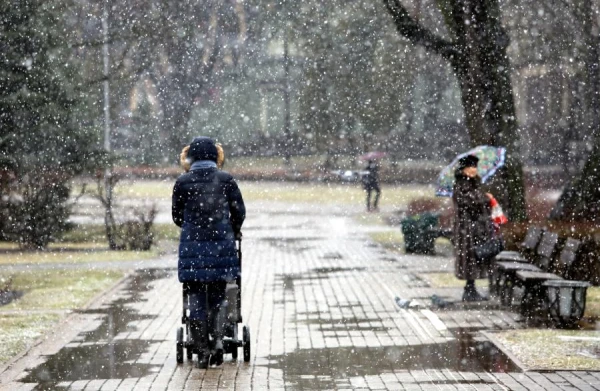
On November 17, Orthodox believers remember events related to two great martyrs — Bishop Nikandr of Myra and Presbyter Yermey. In the folk calendar, this day is called Yaremin Day. In the past, people were afraid to leave their homes to prevent the intrusion of dark forces.
Bishop Nikandr and Presbyter Yermey were companions of Saint Titus, a disciple of the Apostle Paul. Like them, the great martyrs actively preached Christianity.
Their sincere sermons led many pagans to embrace Orthodoxy. When the authorities, who worshipped idols, learned about the activities of Nikandr and Yermey, they ordered the arrest of the preachers and imprisoned them.
Attempts to persuade them to renounce their faith and torture did not break the spirit of the followers of Saint Titus. After brutal tortures and sufferings inflicted on the two great martyrs, they were killed.
Yaremin Day: Traditions of the Folk Calendar
In the folk tradition, the holiday associated with the great martyr Yermey (Yarema) was called both "Yaremin Day" and "Yarema – stay at home," as well as simply "Yarema." People considered this time particularly dangerous.
According to legends, various evil spirits roamed the earth during this period. Malevolent spirits sought to enter homes by all means, so people tried not to step outside.
Our ancestors feared encountering the field spirit or the land spirit — as the masters of the fields were called in ancient times, who guarded their territories. Dangerous were the crossroads, which had their own master known as the postrel. He could send misfortune and illness upon people.
Meetings with the postrel and land spirit promised nothing good. Therefore, all plans related to travel were postponed to another time. "The outskirts are ghostly on this day," our ancestors said. It was believed that closer to night, sorcerers, witches, and other characters from pagan times would go "hunting."
The elders claimed that the unclean force roaming on Yaremin Day hunted for fire. Therefore, people carefully watched the flames, which in wicked hands could bring a lot of trouble. "Light, hold the torch tightly, so that the unclean force does not carry away any embers from the house."
On Yaremin Day, peasants kept a close eye on the stoves. If any neighbors came for fire, they received a categorical refusal. "From a spark, a fire is born," "A small spark gives rise to a great flame," they used to say.
Yarema – Stay at Home: Activities on This Day
Since Yaremin Day was considered dangerous, people spent it at home. Housewives engaged in cleaning and cooking, while men tidied up the barn and yard. On this day, it was customary to check hunting and fishing gear to be ready for manly activities. Mothers taught their daughters handicrafts, while fathers told their sons about the intricacies of hunting and fishing.
The evening was usually dedicated to family gatherings. While the housewives set the table and brewed herbal tea with honey, the elders entertained the grandchildren with tales and fables. Yaremin Day brought families together — the sense of danger always unites people.
To protect themselves from evil spirits, various amulets were used. Crosses were drawn above the entrance and under the windows, and branches of rowan were always placed on the windowsills, which were considered powerful protectors.
Our ancestors had a special relationship with rowan. It not only protected against evil spirits but also helped with colds, joint pain, and stomach issues. Delicious tinctures were made from the berries.
They also protected against evil spirits with snake skins, which were brought from the forest after the reptiles shed. They were hung above the entrance door along with horseshoes. However, prayers and the cross worn on the body were always considered the main protectors.
Despite the fact that the Orthodox Church did not approve of this, on Yaremin Day, women and girls often turned to witches and healers. Young women asked for fortune-telling about their suitors, while women sought help with family matters.
Yarema – Stay at Home: Folk Signs
Typically, on Yaremin Day, the weather reflected the general mood. "Outside the threshold, it swirls, muddles, and leads astray." The clouds "told" what to expect from nature. If they were wavy, it foretold bad weather days.
If it snowed on Yarema – stay at home, people understood that winter would be generous with such precipitation. If crows began to caw, it meant that rain would come soon. If cats were angry and pressed against the stoves, it foretold a coming cold snap.
Yarema – Stay at Home: What Not to Do
If on Yaremin Day people could not stay home, they stepped outside with prayers. During this time, they tried not to speak with strangers. On Yaremin Day, it was also forbidden to:
Borrow money and lend it — this will lead to ruin.
Start any business — it will end in disappointment.
Engage in matchmaking or marry — such marriages are short-lived.
Quarrel, especially among spouses — any, even the smallest conflict, will drag on for a long time.
In ancient times, on Yaremin Day, guests were not received, and no one visited anyone to preserve happiness and peace in the family.













